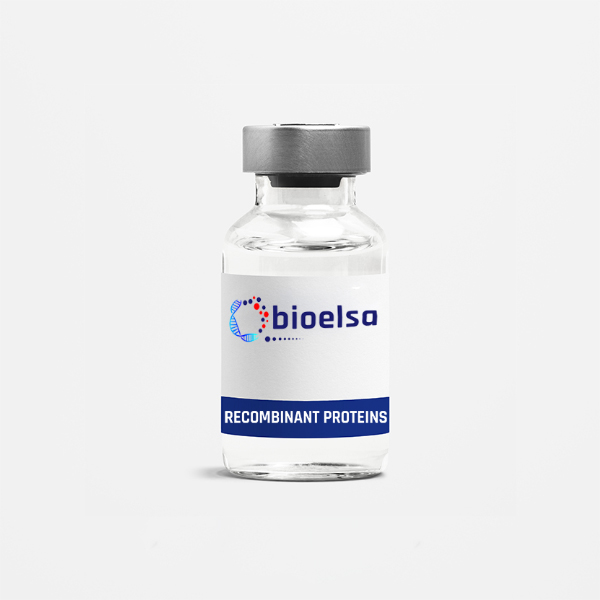| Gene ID |
6366 |
| Accession | O00585 |
| Alternative Name | C-C motif chemokine 21, 6Ckine, Beta-chemokine exodus-2, SLC, Small-inducible cytokine A21, SCYA21<br/>Recombinant Human Secondary Lymphoid-Tissue Chemokine (CCL21) |
| Species | Human |
| Source | E. coli |
| Description | CCL21, which is a member of the family of CC-Chemokines, has a unique 36 (murine) or 37 (human) amino acid carboxyl-terminal extension not seen in other chemokines. CCL21 selectively stimulates the chemotaxis of adult T lymphocytes and is expressed preferentially in lymph node tissue. CCL21 is critical for adult T cell adhesion to high endothelial venules in lymph nodes, a rate-limiting step for T cell trafficking through nodal tissue. |
| Accession | O00585 |
| Functions | Determined by its ability to chemoattract total lymphocyte population using a concentration range of 10-100 ng/mL. |
| Formulation | Recombinant CCL21 was lyophilized from a 0.2 ?m filtered solution in 2.5% glycine, 0.5% sucrose, 0.01% Tween80, 5 mM Glutamic acid, pH 4.5. |
| Solubility | A quick spin of the vial followed by reconstitution in distilled water to a concentration not less than 0.1 mg/mL. This solution can then be diluted into other buffers. |
| Appearance | Lyophilized Powder |
| Molecular Weight | 12 |
| Purity | >95% as determined by SDS-PAGE |
| Concentration | <1.0 EU/μg of recombinant protein as determined by the LAL method. |
| Shipping Condition | Ambient Temperature |
| Storage Condition | The lyophilized protein is stable for at least one year from date of receipt at -70?C. Upon reconstitution, this cytokine can be stored in working aliquots at 2? - 8?C for one month, or at -20?C for six months, with a carrier protein without detectable loss of activity. Avoid repeated freeze/thaw cycles. |
